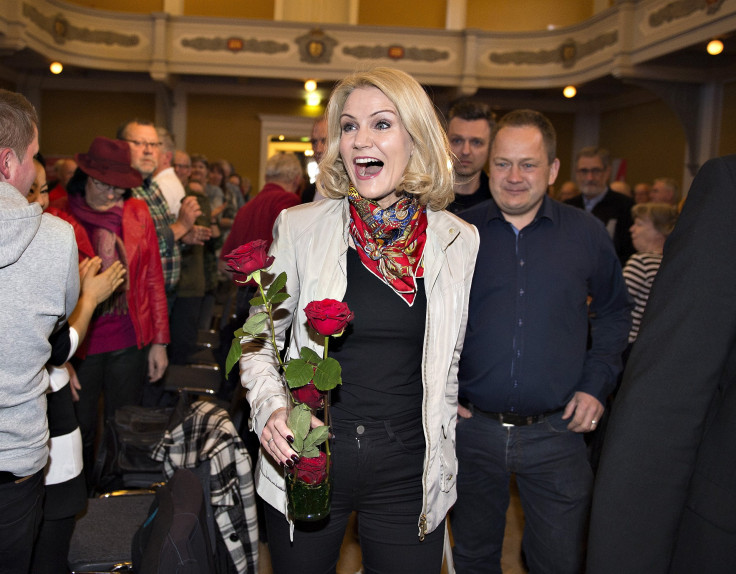Denmark's Prime Minister Helle Thorning-Schmidt Calls General Election

Danish Prime Minister Helle Thorning-Schmidt officially began Denmark’s election cycle on Wednesday at a press conference by calling the general election for June 18. Thorning-Schmidt spoke about her center-left administration’s accomplishments, and made a case for her Social Democrat party to win another term in office over the center-right Liberal Party.
Her announcement came shortly after the Danish government announced an upward revision of its economic forecast.
"Denmark is back on track, we are out of the crisis. ... It's time to ask the Danes if they want to maintain this direction," she said, according to the Local. She listed a number of achievements of her administration, including an improved economy, lowered unemployment, and tightened restrictions on immigration and refugees. "In short, Denmark is in better shape today than it was in 2011," she reportedly said.
Recent polls have suggested that Thorning-Schmidt’s party and its coalition allies have consistently trailed behind the opposition bloc led by the Liberals, but Thorning-Schmidt remains more popular than opposition leader and former prime minister Lars Rasmussen. A poll published by local news agency Ritzau on Monday showed that 45.6 percent people favored the government and its allies, compared to 54.3 percent supporters of the opposition, Agence France-Presse (AFP) reported.
Her administration has been criticized for its relatively conservative policies, which included slashing corporate taxes, cutting unemployment benefits and partially privatizing a state energy utility, AFP reported.
This election cycle could also see the euroskeptic Danish People's Party, which won four seats in the 2014 European Parliament Election, make further inroads in domestic politics, Reuters reported. The party could also support the Liberals and their allies in a coalition if the latter were to win.
© Copyright IBTimes 2024. All rights reserved.





















